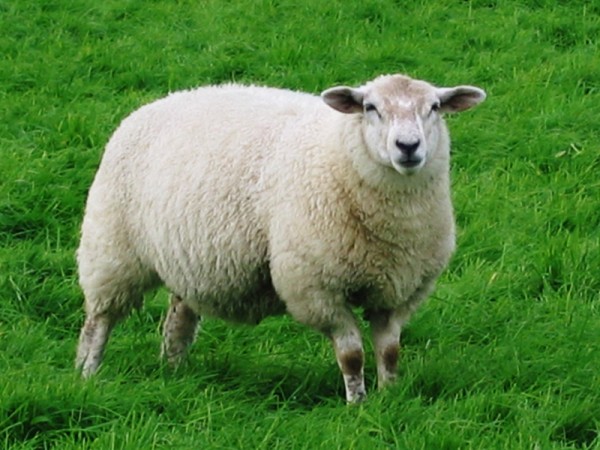Pasanac (armadillo)
Armadillos are small placental mammals, known for having a bony armor shell. The Dasypodidae are the only surviving family in the order Cingulata, part of the superorder Xenarthra along with the anteaters and sloths. The word armadillo is Spanish for "little armored one".
There are approximately 10 extant genera and around 20 extant species of armadillo, some of which are distinguished by the number of bands on their armor. Their average length is about 75 centimeters (30 in), including tail; the Giant Armadillo grows up to 100 cm (39 in) and weigh 66lbs, while the Pink Fairy Armadillos are diminutive species with an overall length of 12–15 cm (4–5 in). All species are native to the Americas, where they inhabit a variety of environments.
In the United States, the sole resident armadillo is the Nine-banded Armadillo (Dasypus novemcinctus), which is most common in the central southernmost states, particularly Texas. Their range is as far east as Florida and as far north as Kansas, and while cold winters have slowed the expansion of their range (due to a lack of sufficient body fat), they have been consistently expanding their range over the last century due to a lack of natural predators and have been found as far as western Kentucky, and are expected to eventually reach Ohio before the cold winters inhibit their expansion.
Čudnovati kljunaš (platypus)
The Platypus (Ornithorhynchus anatinus) is a semi-aquatic mammal endemic to eastern Australia, including Tasmania. Together with the four species of echidna, it is one of the five extant species of monotremes, the only mammals that lay eggs instead of giving birth to live young. It is the sole living representative of its family (Ornithorhynchidae) and genus (Ornithorhynchus), though a number of related species have been found in the fossil record.
The bizarre appearance of this egg-laying, venomous, duck-billed, beaver-tailed, otter-footed mammal baffled European naturalists when they first encountered it, with some considering it an elaborate fraud. It is one of the few venomous mammals; the male Platypus has a spur on the hind foot that delivers a venom capable of causing severe pain to humans. The unique features of the Platypus make it an important subject in the study of evolutionary biology and a recognizable and iconic symbol of Australia; it has appeared as a mascot at national events and is featured on the reverse of the Australian 20 cent coin.
Until the early 20th century it was hunted for its fur, but it is now protected throughout its range. Although captive breeding programs have had only limited success and the Platypus is vulnerable to the effects of pollution, it is not under any immediate threat.
Ovca (sheep)
Domestic sheep (Ovis aries) are quadrupedal, ruminant mammals kept as livestock. Like all ruminants, sheep are even-toed ungulates, also commonly called cloven-hoofed animals. Although the name "sheep" applies to many species, in everyday usage it almost always refers to Ovis aries. Domestic sheep are the most numerous species in their genus, and are most likely descended from the wild mouflon of Europe and Asia.
One of the earliest animals to be domesticated for agricultural purposes, sheep are primarily valued for their fleece and meat. A sheep's wool is the most widely used of any animal, and is typically harvested by shearing. Ovine meat is called lamb when from younger animals and mutton when from older ones. They continue to be important for wool and meat today, and are also occasionally raised for pelts, as dairy animals, or as model organisms for science.
Sheep husbandry is practised throughout the inhabited world, and has played a pivotal role in many civilizations. In the modern era, Australia, New Zealand, Patagonian nations, and the United Kingdom are most closely associated with sheep production. Sheep-raising has a large lexicon of unique terms which vary considerably by region and dialect. Use of the word sheep began in Middle English as a derivation of the Old English word scēap; it is both the singular and plural name for the animal. A group of sheep is called a flock, herd or mob. Adult female sheep are referred to as ewes, intact males as rams, castrated males as wethers, and younger sheep as lambs. Many other specific terms for the various life stages of sheep exist, generally related to lambing, shearing, and age.
Jež (hedgehog)
A hedgehog is any of the small spiny mammals of the subfamily Erinaceinae and the order Erinaceomorpha. There are 16 species of hedgehog in five genera, found through parts of Europe, Asia, Africa, and New Zealand. There are no hedgehogs native to Australia, and no living species native to North America; those in New Zealand are introduced. Hedgehogs have changed little over the last 15 million years. Like many of the first mammals they have adapted to a nocturnal, insectivorous way of life. The name 'hedgehog' came into use around the year 1450, derived from the Middle English 'heyghoge', from 'heyg', 'hegge' = hedge, because it frequents hedgerows, and 'hoge', 'hogge' = hog, from its piglike snout.[2] Other folk names include 'urchin', 'hedgepig' and 'furze-pig'.
Hedgehogs are easily distinguished by their spines, which are hollow hairs made stiff with keratin. Their spines are not poisonous or barbed and, unlike the quills of a porcupine, cannot easily be removed from the animal. However, spines normally come out when a hedgehog sheds baby spines and replaces them with adult spines. This is called "quilling". When under extreme stress or during sickness, a hedgehog can also lose spines.
James Blunt (james blunt)
James Blunt (born James Hillier Blount, February 22, 1974) is an English singer-songwriter whose debut album, Back to Bedlam, and single releases — especially the number one hit "You're Beautiful" — brought him to fame in 2005. His style is a mix of pop, rock and folk. Along with vocals, James Blunt performs a variety of instruments, including piano and guitar. He is signed to Linda Perry's American label Custard Records. Blunt won two BRIT Awards and two Ivor Novello Awards, and was nominated for five Grammy Awards in 2006. Blunt subsequently released his second album, All the Lost Souls, in 2007; this album was certified gold within its first week of release.
Prior to embarking on a career in music, Blunt was an officer in the Life Guards a regiment of the British Army, and served as a member of the NATO peacekeeping force in Kosovo. While posted to Kosovo, Blunt was introduced to the work of Médecins sans Frontières (MSF) (also known as Doctors without Borders), a humanitarian aid group best known for its emergency medical care in conflict-torn regions; during his musical career, Blunt has supported MSF by holding meet-and-greet auctions at many of his concerts. While Blunt has spent most of his life studying and living in England, his primary residence is now on the Spanish island of Ibiza, where he wrote many of the songs on his second album.




















